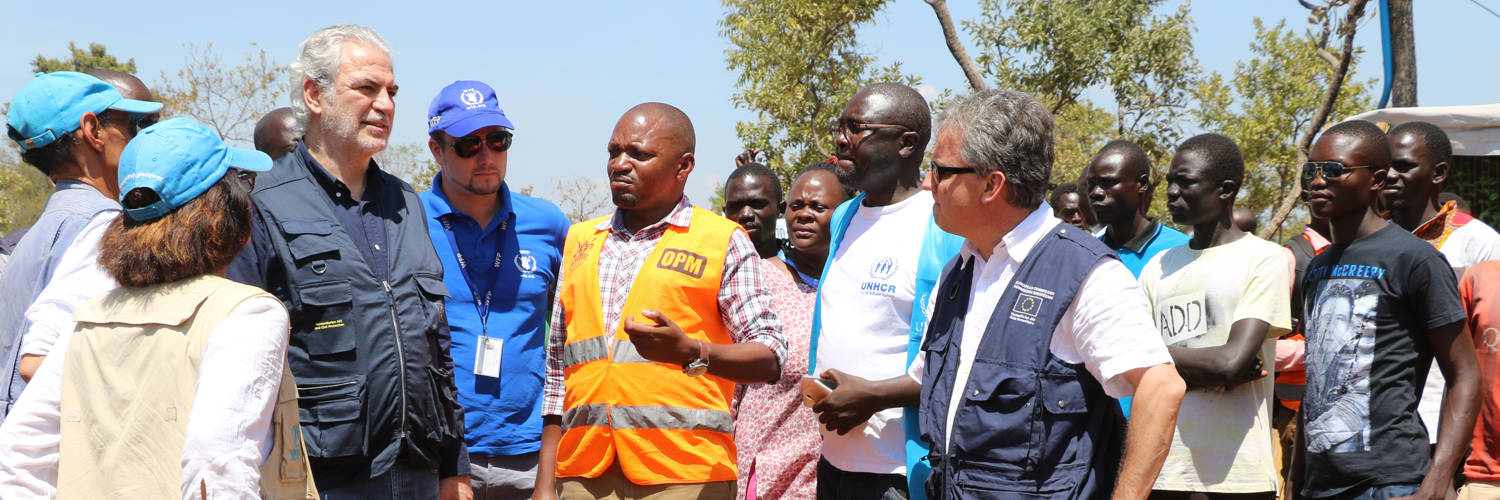
In protracted humanitarian crises, local residents, groups, institutions, and the diaspora are key humanitarian actors. They are often the first to assist in emergencies, and they remain engaged throughout the complex crises that may follow.
There is limited understanding of how these local and transnational citizens operate, and how they approach accountability compared to professional humanitarians. While the professional sector relies heavily on vertical technical-financial systems, civic humanitarians often depend on trust-based horizontal social networks and social media to provide accountability.
Through the AidAccount project we have explored how accountability is defined and practiced locally at the meeting point between civic and professional humanitarianism in protracted crises in Uganda, Somalia and Sri Lanka.
At the final conference at PRIO in Oslo, we will share findings from the project, aiming to create dialogue among various humanitarian aid stakeholders, including INGOs, diaspora, affected populations, funders, and researchers. This includes discussions on potential engagement with civic humanitarians, and possibilities for advancing the humanitarian localization agenda that seeks to shift power, resources, and decision-making closer to affected communities and local actors.
Conference participation is in person only, but recordings will be made available after the event.
Program
Monday 13 May
11:30 - 14:30 Putting Localization in Practice
Based on learnings from the AidAccount humanitarian lab, the aim of this session is to explore questions of localization and accountability with different stakeholders. Using a fishbowl conversation approach, participants will together move beyond discussions on ambitions and challenges to coming up with concrete solutions to main dilemmas faced. The discussion is facilitated by Sever Dzigurski, Head of Secretariat of the Knowledge Platform for Security and Rule of Law. The conversation will involve representatives from Save the Children, NPA, NCA, Caritas, NORCAP, Red Cross, NORAD, MFA, AidAccount researchers, Windle Trust, diaspora organizations from Somalia, Sudan, and Sri Lanka.
Lunch from Mela café.
Listen to the recording of this session here.
16:30-18:30 Visualizing Memories of Protracted Displacement
With Dr. Danesh Jayatilaka, Chairman of the Centre for Migration Research and Development and Dr. Mohideen Mohamed Alikhan, Senior Lecturer, University of Peradeniya, Tamina Sheriffdeen Rauf, Oslo City Council, and Cathrine Brun, Professor and Deputy Director of the Center for Lebanese Studies (CLS). The conversation will be moderated by Marta Bivand Erdal, Research Professor at PRIO. Please register here.
Street food from Tunco catering.
Listen to the recording of this session here.
Tuesday 14 May
09:00-12:00 Local Leadership in Crises: Community-Based Responses, Civic Humanitarianism and the Localization Agenda
Brief introduction to the AidAccount project and the relational humanitarianism framework by Cindy Horst, Research Professor at PRIO, and Cathrine Brun (CLS). Keynote by Emmanuel Viga, doctoral researcher at NTNU and Makerere University, on refugee-led assistance and socio-cultural practices of helping and sharing among South-Sudanese refugees in Uganda. Followed by a panel with Cathrine Brun (CLS), Jon Ragne Bolstad, Senior Advisor Civil Society at Norwegian Church Aid, and Marangu Njogu, CEO of Windle International. Chaired by Hilde Refstie, Associate Professor at NTNU.
Lunch from den fete burmeser.
Listen to the recording of this session here.
13:30-16:00 Local Understandings and Practices of Accountability
In this session, Senior Researcher Hassan Aden, Senior Researcher at PRIO, will share his research on refugee-led education initiatives in the Dadaab refugee camps of Kenya. This example will serve as an entry point into more general discussions on local understandings and practices of accountability, through a panel discussion with Sian Rowbotham, Senior Humanitarian Advisor at Norwegian People's Aid, Eria Serwajja, Lecturer at Makerere University and Cindy Horst, (PRIO). Chaired by Marta Bivand Erdal (PRIO).
Listen to the recording of this session here.
Wednesday 15 May
12:00-13:30 Locally-led Aid and Accountability: What Have We Learned?
In this lunch seminar, AidAccount researchers, together with Marangu Njogu (Windle International), Hans-Inge Corneliussen, Acting Deputy Director, Norad, and Sever Dzigurski (KPSRL) will explore what we now know about understandings and practices of accountability in humanitarian assistance. The speakers draw on findings from the AidAccount project as well as eye-openers from the final conference. Please register here.





